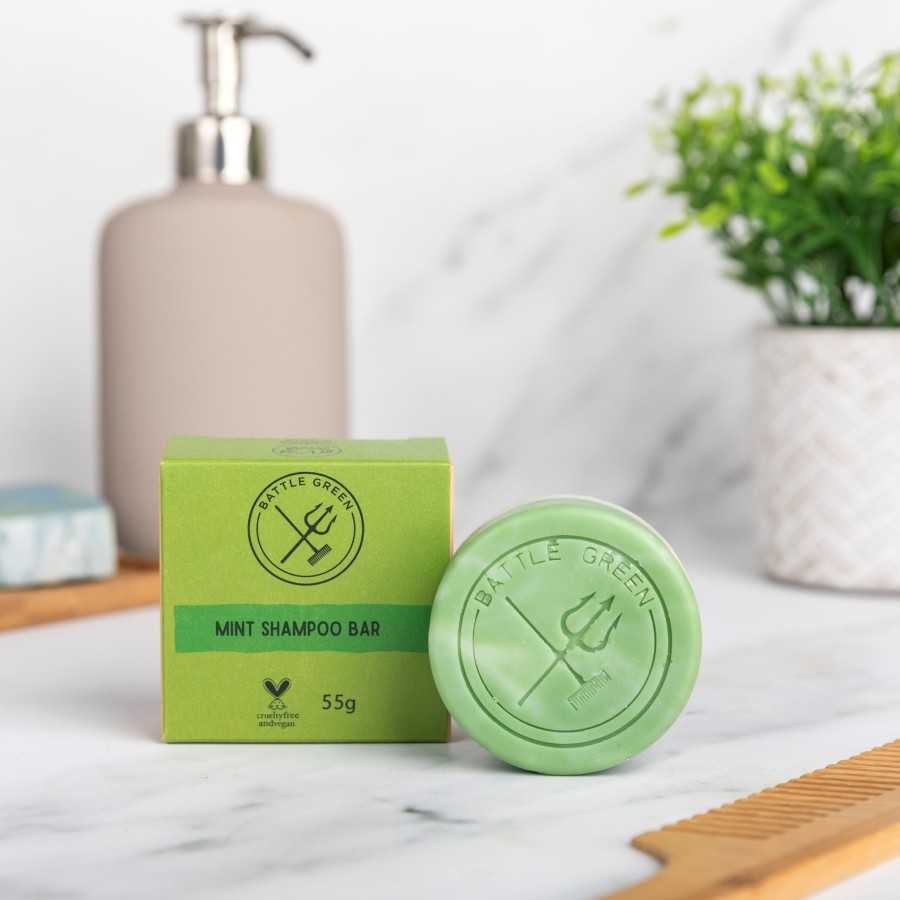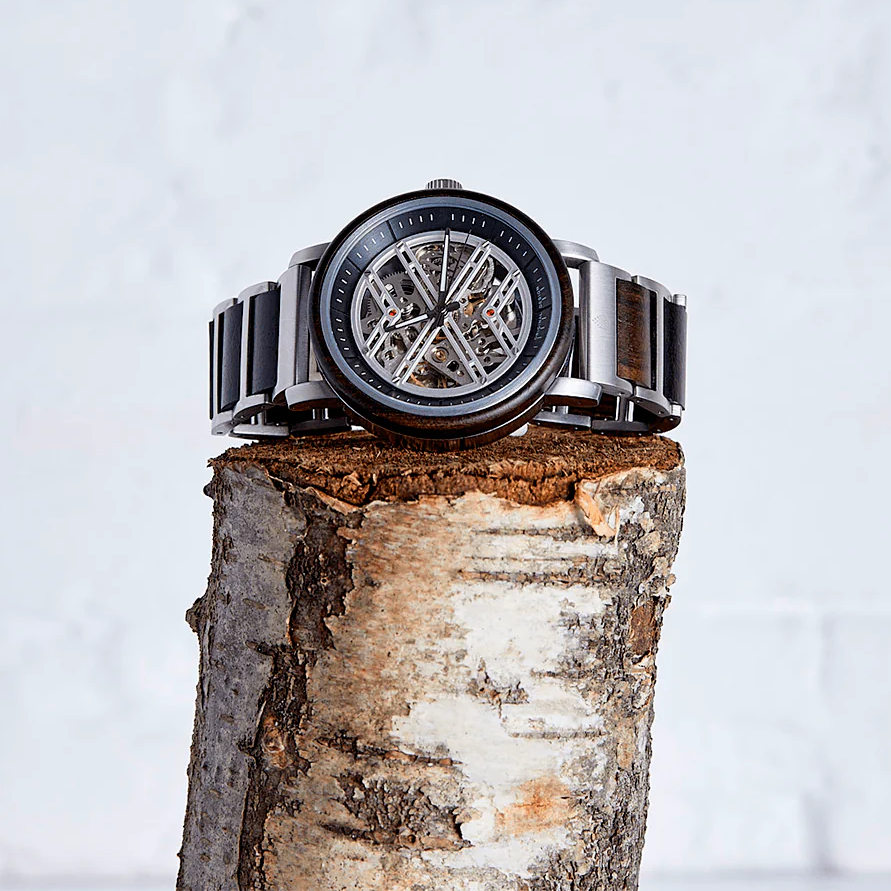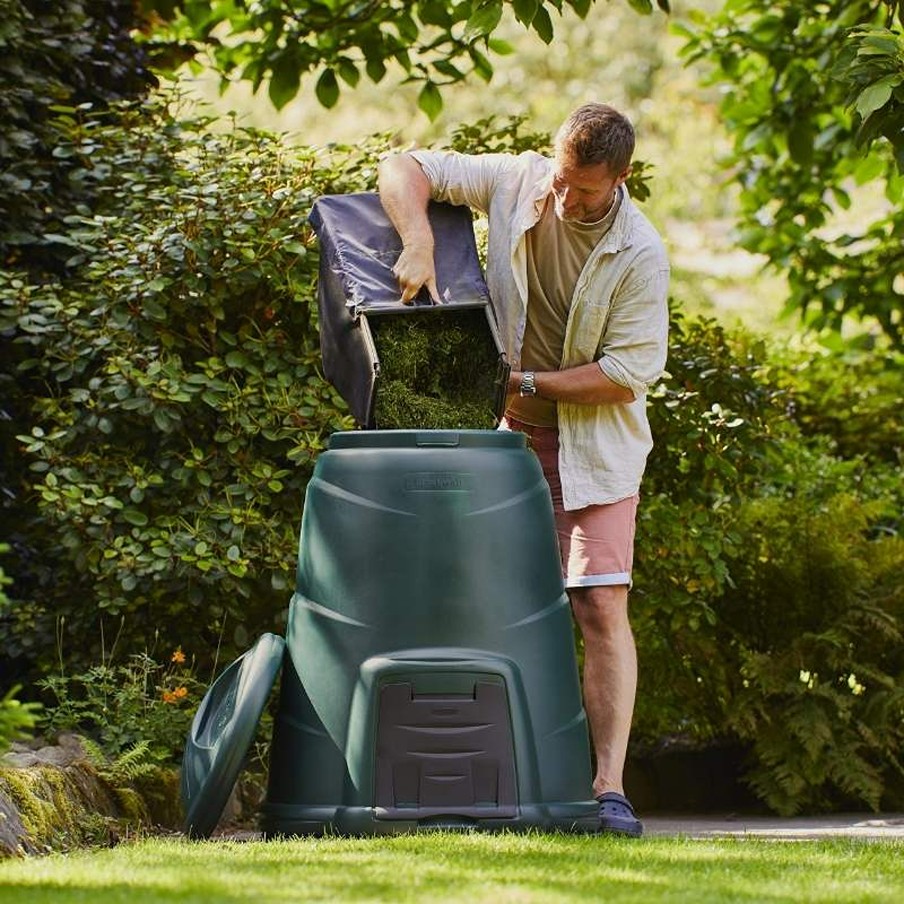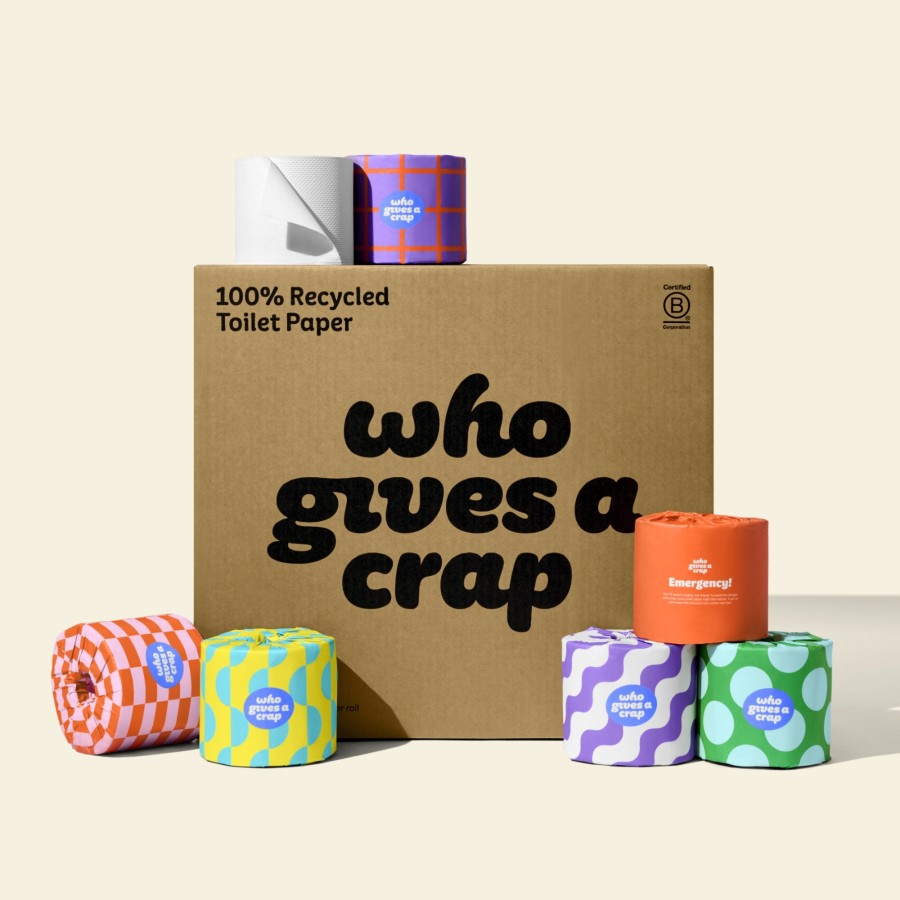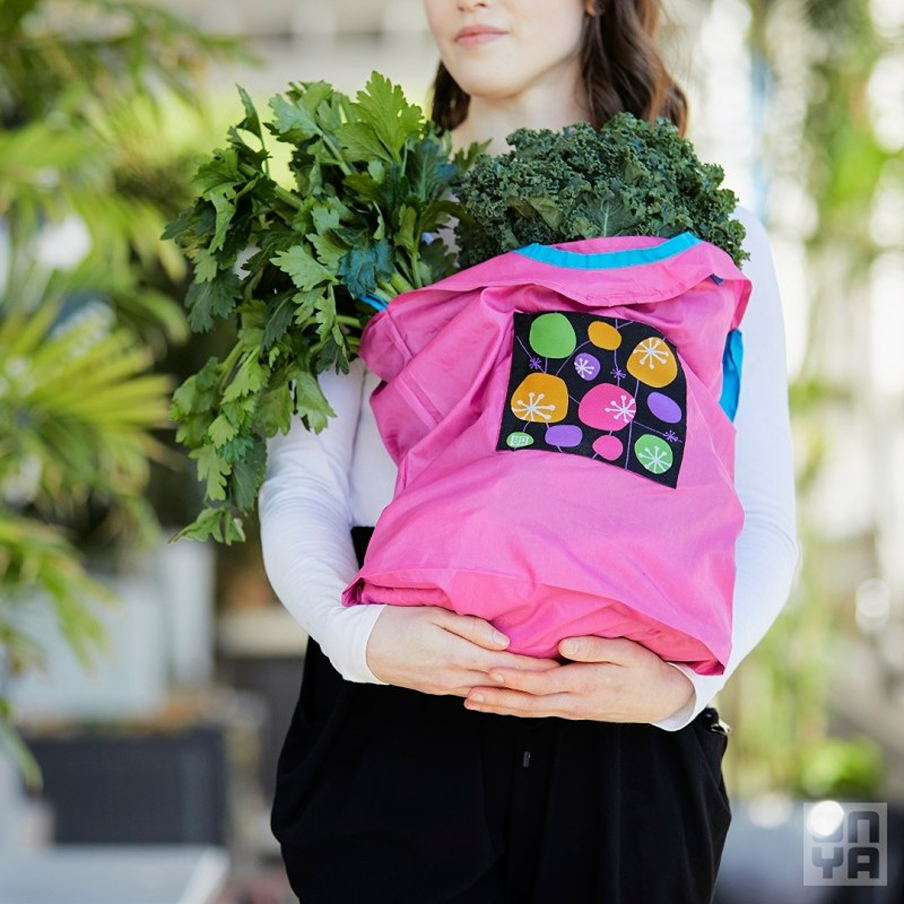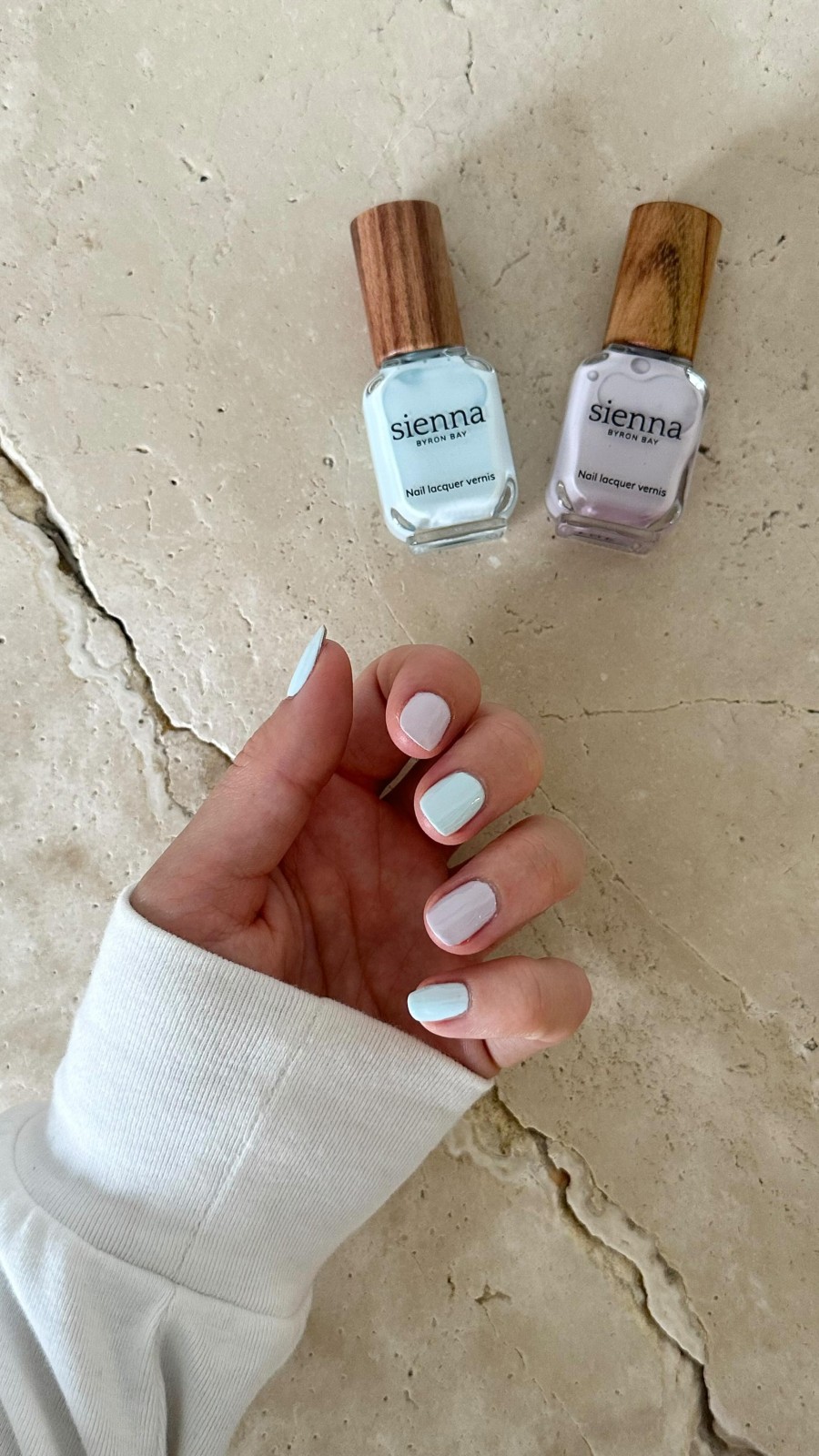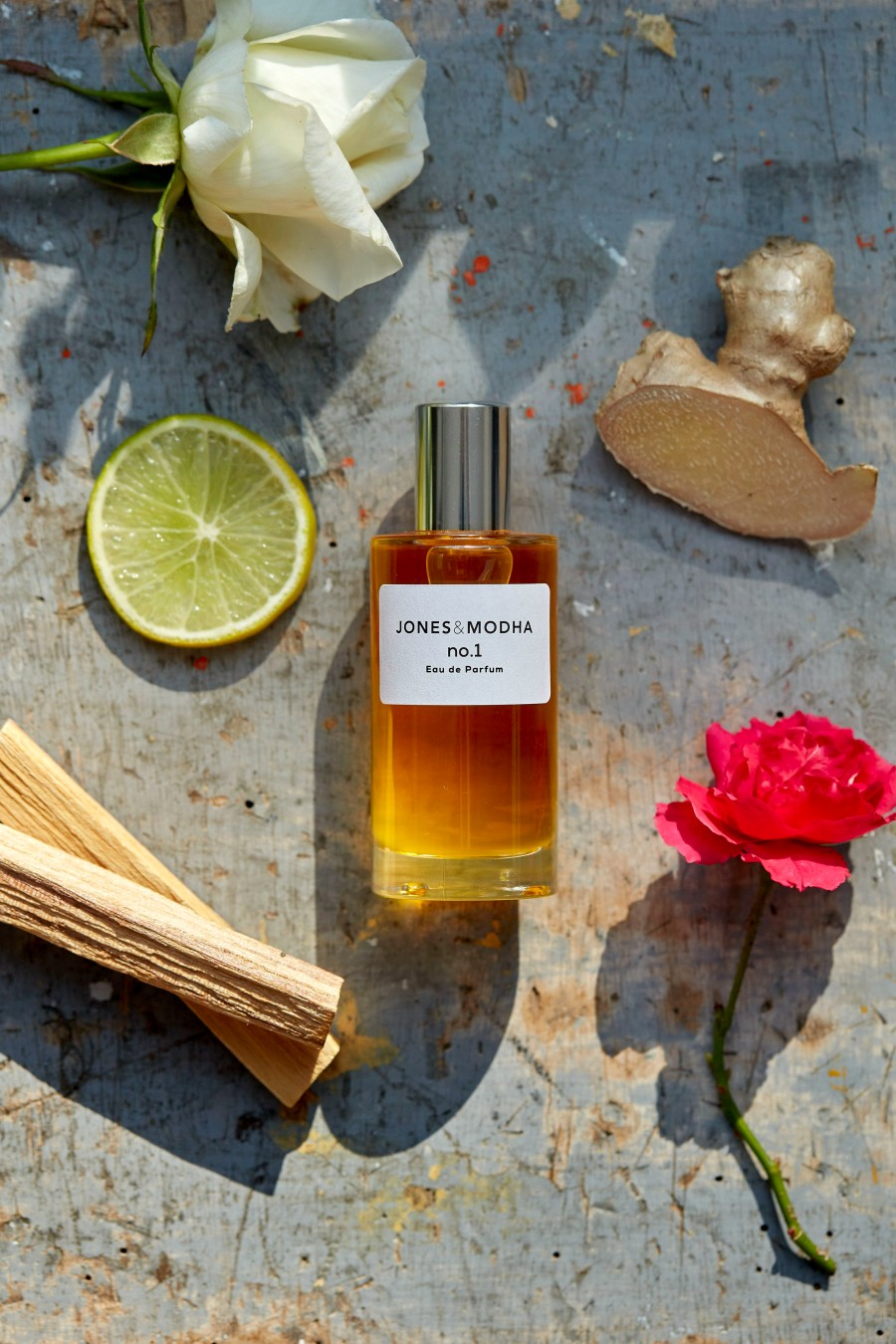
The UK fragrance market is worth £7 billion. Although a ban on animal testing came into force a few years ago for cosmetics, some brands test elsewhere and clock allergens and hormone disruptors under the term ‘fragrance’ (a third of people are allergic to perfume). Natural perfumes don’t last as long but are nicer, more affordable (not paying for packaging or celebrity adverts).
Jones & Modha No.1 (Somerset) is made with a breezy scent of citrus trees, cut leaves, woody greens and spice. Contains notes of bergamot, lemon myrtle, grapefruit and red mandarin. Middle notes of rose geranium, linden, ginger, rose, coriander and spearmint. And base notes of cedarwood.
Keep perfumes in a dark cool place (stop use if irritation occurs and avoid citrus oils for photo-sensitivity). Avoid perfumes when pregnant/breastfeeding and never spray near babies or pets (nor use cocoa solid perfumes in case they lick your skin). Don’t wear perfume, if pets sleep on your beds.
Choose vegan perfumes, as some brands use ambergris (whale poop), musk (a tiny Siberian deer), civet (Asian wild cat), castoreum (beavers) and hyraceum (an African guinea pig). Choose sustainable oils (esp. sandalwood, frankincense, eucalyptus) and avoid rosewood oil (endangered tree).
organic scent from Neal’s Yard Remedies
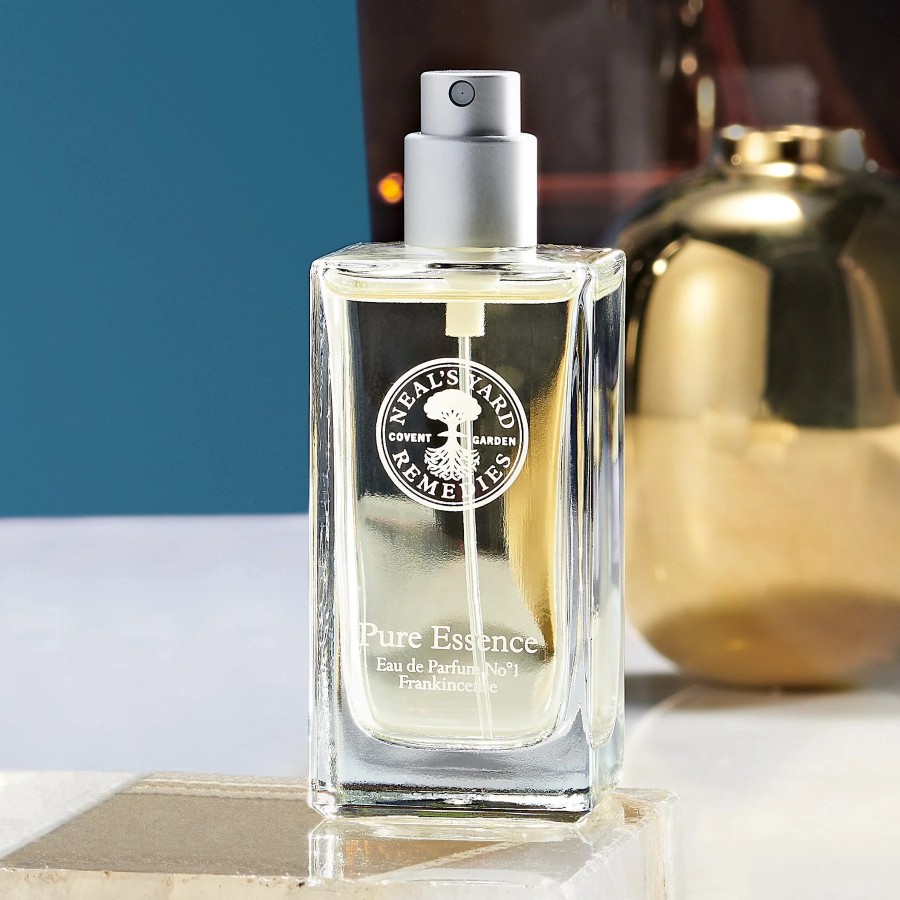
Neal’s Yard Remedies offers a nice organic perfume made with real ingredients. It has top notes of lime, neroli, bergamot and pink pepper, middle notes of frankincense, lavender and Spanish marjoram and base notes of patchouli, vetiver and myrrh.
Haoma natural organic perfumes
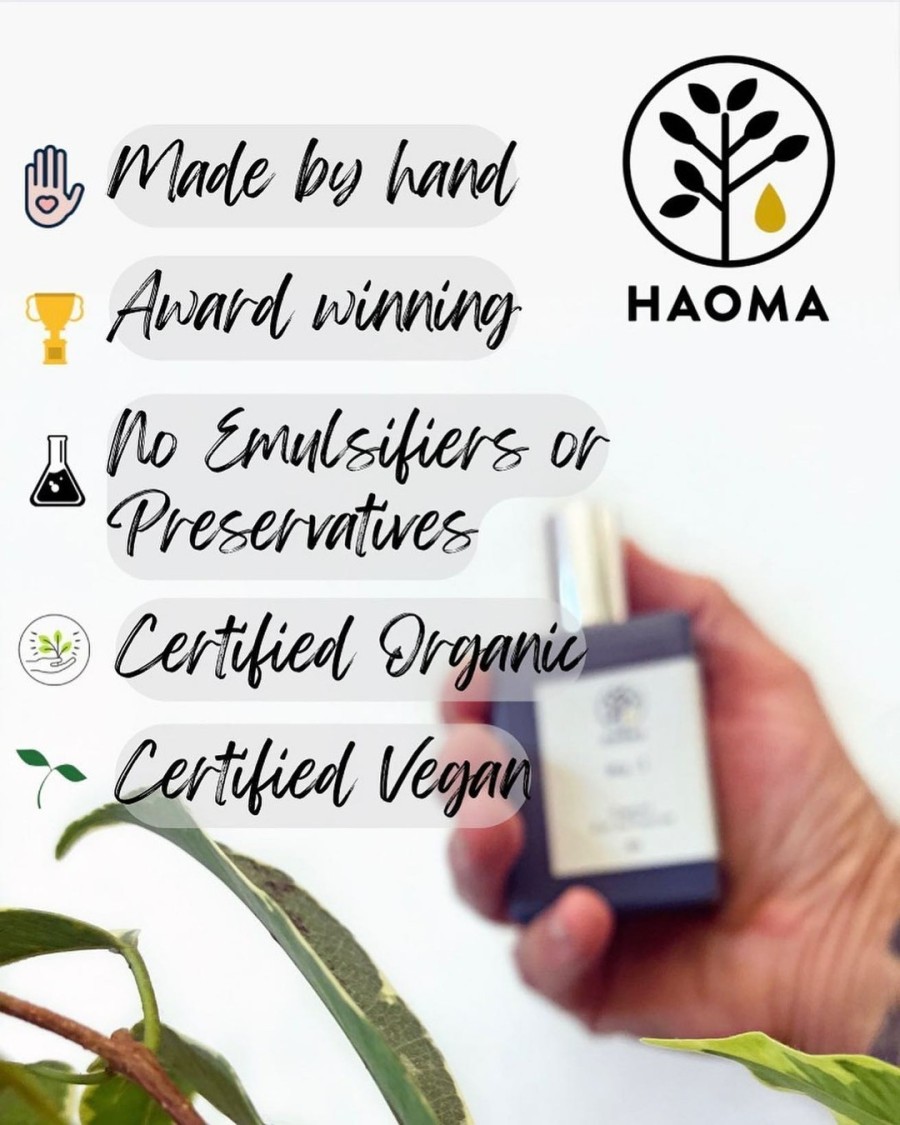
Haoma Perfumes are made with organic ingredients, sold in beautiful frosted bottles. Free from synthetic fragrance molecules, the range includes lavender, myrrh & frankincense, ylang ylang, orange and No.1 (geranium patchouli, frankincense, cedarwood, palmarosa, sweet orange and thyme).
how to dispose of old perfumes & colognes
A bit like paint, the best thing to do with perfumes and colognes is to use them up, as they are classed as flammable hazardous waste. Empty bottles can be recycled.

